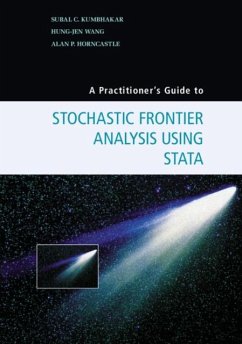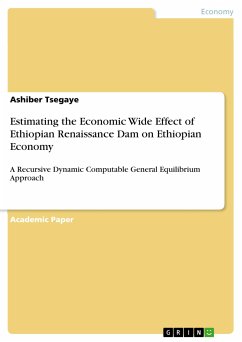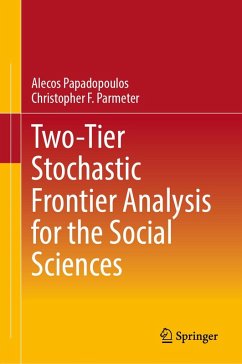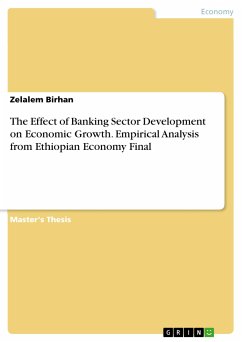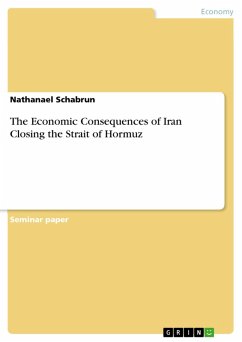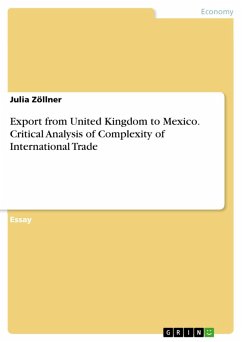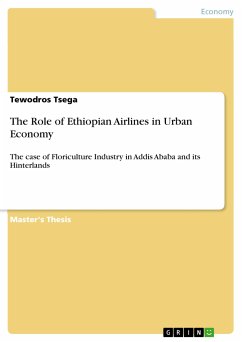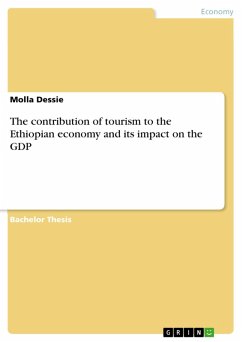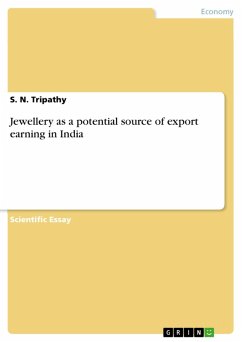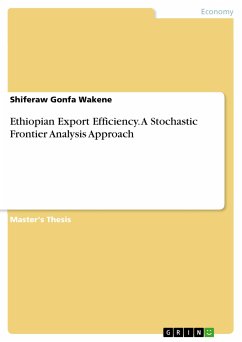
Ethiopian Export Efficiency. A Stochastic Frontier Analysis Approach (eBook, PDF)
Sofort per Download lieferbar
Statt: 22,99 €**
14,99 €
inkl. MwSt. und vom Verlag festgesetzt.
**Preis der gedruckten Ausgabe (Broschiertes Buch)
Weitere Ausgaben:

PAYBACK Punkte
0 °P sammeln!
Master's Thesis from the year 2018 in the subject Economics - Foreign Trade Theory, Trade Policy, grade: Excellent, , course: Development Economics, language: English, abstract: This study is conducted to investigate Ethiopian exports efficiency by using a stochastic frontier analysis model with panel data to estimate if countries operated at the frontier with its major trading partners. Export efficiency is defined as the ratio of actual exports to the maximum possible volume. In addition, the study investigates the factors of export efficiency, focusing on Ethiopia's exports to its major tra...
Master's Thesis from the year 2018 in the subject Economics - Foreign Trade Theory, Trade Policy, grade: Excellent, , course: Development Economics, language: English, abstract: This study is conducted to investigate Ethiopian exports efficiency by using a stochastic frontier analysis model with panel data to estimate if countries operated at the frontier with its major trading partners. Export efficiency is defined as the ratio of actual exports to the maximum possible volume. In addition, the study investigates the factors of export efficiency, focusing on Ethiopia's exports to its major trading partners during the period 2006 to 2017. The arable land, gross domestic product and population of Ethiopia and of the trade partner's countries, distance between Ethiopia and trade partners' countries, gross capital formation, and geographical location of trade partner's countries determines the export flows of Ethiopian export. As a result the estimated coefficient of determinants shows that population and gross domestic product have significantly and positively affect the Ethiopian export sector. The empirical results show that the volume of Ethiopian actual exports is far below the estimated efficient level, and that there is considerable room for increasing Ethiopia's exports. The trend of agricultural export efficiency shows some improvement over the stated years while manufacturing sector shows decreases. Those findings imply that Ethiopia should search the redemption policy that enables the country to maximize the efficiency of the sector by using all possible potential.
Dieser Download kann aus rechtlichen Gründen nur mit Rechnungsadresse in A, B, BG, CY, CZ, D, DK, EW, E, FIN, F, GR, HR, H, IRL, I, LT, L, LR, M, NL, PL, P, R, S, SLO, SK ausgeliefert werden.





